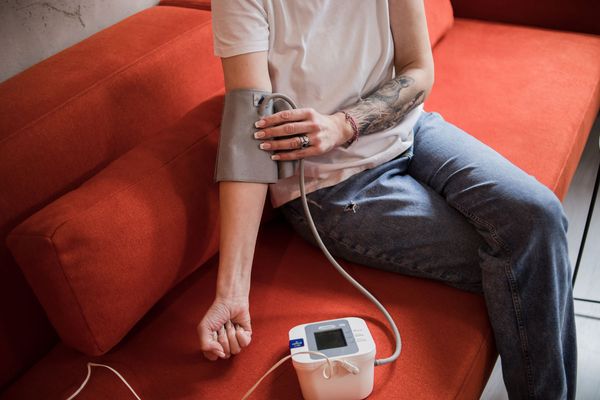techUK’s 2024 Health and Care Summit- Read the key takeaways!
techUK was delighted to host our second Health and Care Summit on 8 October. Sponsored by techUK member Mills & Reeve, the action-packed day included several panels covering a wide range of discussions on topical challenges and opportunities in the health and care sector, including:
The panels featured a wide variety of techUK members (both SMEs and multinationals), as well as representatives from NHS England, Digital Care Hub, NHS Trusts, The Health Foundation, National Care Forum, and the London Office of Technology and Innovation.
Many thanks to everyone who joined us to share their insights and experience!
Keynote Speech by Dr. Jennifer Dixon DBE, Chief Executive of The Health Foundation
Dr. Dixon provided an overview of significant developments in the health and social care policy landscape over the past decade, as well as more recent updates including the ambitions outlined by the new Government to reform health and social care. She also reflected on fiscal differences in health spending internationally and summarised key technology-focused policy decisions which have taken place since the election.
Highlighting Lord Darzi’s Independent Investigation of the NHS in England, Dr. Dixon set out key upcoming events and activities which will influence the future of health and social care, including DHSC’s development of a Ten-Year Plan for Health, the Autumn 2024 Budget, and the role of impactful multi-stakeholder partnerships for tackling key health and social care challenges.
Dr. Dixon also updated on The Health Foundation’s work examining the role of artificial intelligence in health and social care, as well as results from surveys led by the Foundation which have examined the attitudes of both NHS staff and the public attitudes towards artificial intelligence, plus digital health technologies and data.
Beyond the Hype: Examining the Role of AI in Health & Care
Led by techUK’s Director of Technology and Innovation Sue Daley, the panellists discussed the implications and role which AI could play in health and social care.
Dr. Ian Abbs, Chief Executive and Chief Medical Director of Guy’s and St Thomas’ NHS Foundation Trust provided an overview of the current AI landscape within the NHS, including potential opportunities to incentivise industry-public sector collaboration. Dr. Umang Patel shared insights both from his role as Chief Clinical Information Officer at Microsoft and his medical practice as a paediatrician, highlighting the impact which technology can have on the work and wellbeing of frontline health and care staff. Katie Thorn, Project Lead at Digital Care Hub, shared a social care perspective, highlighting challenges faced with respect to technological innovation in the care sector, including persisting legacy infrastructure and significant workforce shortages. Lastly, Ralitsa Vasilovska, CEO of Larkspur International, shared her expertise regarding the challenges of collaboration and procurement between government, healthcare, and industry.
Panellists discussed the need for a cultural change within health and care organisations to embrace AI, the importance of developing user-friendly AI tools that will not be burdensome for healthcare workers to use, and the challenges of scaling AI solutions across fragmented health and care systems. The speakers highlighted several key areas where AI could have an immediate impact, such as reducing missed appointments, optimising patient pathways, and supporting frontline workers by automating administrative tasks. Panellists stressed the importance of co-creating AI solutions with healthcare workers and patients to ensure adoption and effectiveness. The panel concluded with a call to action, urging the healthcare sector to leverage the opportunities of AI.
What next for the NHS App: where can industry help?
Robert Walker, Head of Health and Social Care at techUK, guided a discussion on the future developments of the NHS App and its potential to impact citizen health and healthcare delivery.
Panellists included Steven Dodd, Head of Digital Transformation for the NHS App Programme at NHS England, Kit Lewis, Associate Partner in Healthcare & Life Sciences at IBM, Rachel Murphy, Founder of The Grafter, and Emily Cross, Senior Product Lead for the NHS App.
The panel discussion focussed on the future developments of the NHS App and how industry can contribute to the next stage of its development. Beyond the pain points of user experience, healthcare system integration and security challenges, the panellists highlighted the need for better data flow, personalisation, and ultimately shift from the current model where the App primarily provides access to fragmented local services and underserved communities. On the topic of health inequalities and inconsistent health services, the panellists highlighted the importance of addressing contractual and policy issues to ensure consistent service delivery across different local health systems.
Driving the next stages of digital transformation: supporting the future of our health and social care systems
During this session, panellists reflected on a wide spectrum of positive transformation efforts already underway across the UK, from digitising adult social care records to supporting greater remote monitoring activity outside hospitals. The panel, which included Tom Hardie, Senior Improvement Fellow at The Health Foundation, Prof. Sultan Mahmud, Director of Healthcare at BT, Polly Shepperdson, Partnerships Manager at First Databank, Tommy Henderson-Reay, Digital Engagement Programme Manager for the Digitising Social Care Programme and Richard Keyse, Founder and CEO of 2iC-Care, also reflected on ways to mitigate digital transformation progress being lost, in light of the observation in Lord Darzi’s 2024 report’s comment that “the last decade was a missed opportunity to prepare the NHS for the future”. Echoing previous calls made across other Summit conversations, the panel reflected on the need for greater cross-service, cross-system and cross-sector collaboration, and discussed the combined opportunity and challenge of transcending siloed, historical ways of working in order to reimagine care pathways and adopt more innovative and efficient ways of working.
Collaboration for the digital future: where next to improve the integration of health and social care?
The panel discussion focussed on the challenges of integrating health and social care services beyond financial and operational siloes. It was chaired by Helena Zaum, CCO of Sentinel Partners and Chair of the Social Care Working Group at techUK. Participants included Beverly Futtit, Digital Transformation Lead at the National Care Forum, Nick Prentice, Technology Strategy Manager for Healthcare at KPMG, Genta Hajri, Digital Innovation Delivery Lead at the London Office of Technology and Innovation, and Dr. Michael Watts, Co-Founder and CEO of Blüm Health.
Considering the challenges that confront social care, panellists recognised the need for improved coordination and strategic planning across the varied actors of health and care systems and services in order to improve people’s experience of care, care outcomes and service productivity. Genta highlighted the London Office for Technology and Innovation’s recently-launched Sandbox focused on adult social care, which aims to provide an opportunity to test innovative approaches to key complex challenges in the sector. Beverly highlighted how the adult social care sector contributes £60bn to the economy per annum, and cited positive lessons learnt from Norway’s models of care which include joint decision-making and procurements across organisations. The panellists underscored how improved care outcomes and ways of working can only be achieved with collaboration and innovation between industry, the NHS, local authorities, care providers and other key health and care stakeholders in recognising the need for a holistic approach that extends beyond organisational boundaries.
Recent Developments in the Procurement landscape: how changes will impact healthcare suppliers
The panel, led by Charlotte Lewis, Principal Associate at Mills & Reeve, discussed recent changes in healthcare procurement, focussing on the delayed Procurement Act 2023 and the new Provider Selection Regime. Panellists included Nicola Haywood-Cleverly, Non-Executive Director, University Hospital Morecambe Bay NHS FT, and Fiona Hilton, Director of Commercial Best Practice & Engagement at NHS England, and healthcare technology companies representatives; Chris Clinton, Co-founder and CTO of Naq, and Julian Blake, Opencast’s External Relations Manager, highlighted the challenges and opportunities the procurement changes present to healthcare companies. The core sentiment emerging from the discussion was the need for better training and preparation within the NHS, as well as improved support for smaller suppliers and innovators navigating complex procurement processes. However, speakers recognised that, in many ways, the delay in implementing the Procurement Act can be seen as an opportunity to refine approaches and upskill procurement teams.
A key theme was the increasing importance of social value in procurement decisions, with some integrated care systems requiring up to 20% social value consideration. However, panellists noted that many SMEs struggle to articulate their social value contributions effectively, exacerbating the difficulties faced by emerging companies in competing with larger, established players. Overall, the panellists stressed the importance of moving towards value-based procurement, considering quality, innovation, and social value alongside price, and called for greater clarity and collaboration in the procurement process to foster healthcare innovation.
Closing Keynote Speech, David Lawson
David Lawson, Director of Medical Technology Directorate at the Department for Health and Social Care, discussed new initiatives aimed at improving the medical technology procurement process . . He highlighted the Government's focus on economic growth and how medical technology can contribute to improving both health outcomes and economic growth. David outlined challenges in current practices, including inconsistent procurement approaches, difficulties in validating supplier claims, and slow adoption of innovative technologies. To address these issues, the Department is developing guidance for value-based procurement as well as creating a digital solution called "compass" to provide better visibility of available technologies and their attributes.
_________________
The event coincided with the start of techUK’s Health and Social Care Council elections, for which nominations are open between 7-25 October. Open to techUK members only, with 9 out of 23 seats reserved for SMEs, Council membership provides an opportunity to advise and get involved across the whole range of techUK’s health and social care activities.
Health and Social Care Programme activities
techUK is helping its members navigate the complex space of digital health in the UK to ensure our NHS and social care sector is prepared for the challenges of the future. We help validate new ideas and build impactful strategies, ultimately ensuring that members are market-ready. Visit the programme page here.
Upcoming events
Latest news and insights
Learn more and get involved
Health and Social Care updates
Sign-up to get the latest updates and opportunities from our Health and Social Care programme.














